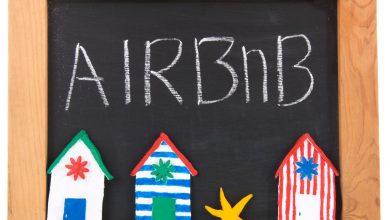
Guest empathy training creates genuine experiences
Now that the hotel industry is well into the era of online guest reviews and social media postings, most hotel leaders are more focused than ever before on training their colleagues to improve guest service.
However, too often the training is limited to teaching interactive communications techniques such as eye contact, facial expressions, using guests’ names and listening for the facts stated during a conversation. While these techniques are all important, they alone do not create hospitality experiences. Therefore, it’s also essential to provide training that helps your staff more deeply understand and empathize with the experiences playing out on the other side of the front desk, the other end of the phone call and the other side of the guest room door.
[pro_ad_display_adzone id=”27469″ align=”left”]Guest empathy training is important because, more often than not, those who work in hotels have limited experience with travel. Chances are that they most likely think it’s always glamourous, fun and exciting.I recall well that when I first started working as a bellman and front-desk colleague in a hotel at age 20, I felt the same way. Oh yes, I had “lots” of travel experience. I had been on family vacations that my parents planned and paid for, and I had gone on spring break trips a time or two, all of which were exciting and stress-free experiences, at least for me! I remember often standing in the lobby wondering why so many of our guests were cranky, impatient and often downright mean, especially when they first arrived.
More than 30 years later, I have experienced life as a stressed out business traveler suffering flight delays and lost luggage. I’ve been the parent entering the lobby after an eight-hour drive in the minivan with young children in the back seats; the spouse trying so hard to plan the picture-perfect romantic getaway that is off to a rocky start; and the boss paying the tab for an important company meeting.
Through no fault of their own, most colleagues simply cannot imagine what guests have gone through en route to the hotel and how their lofty expectations for joyous travel experiences are crashing up against the realities of real-world travel. If training is limited only to communications techniques, the staff will surely sound polite, but they will likely come off as being scripted or, worse yet, insincere.
As a result, these hoteliers will frequently see comments such as these in their online reviews, social media and guest surveys:
“Not only did we have a problem, but no one seemed to care.”
“The worst part is that no one apologized.”
“There were three people on duty, yet no one even greeted us.”
So besides training on interactive communication techniques, be sure your hospitality training helps your staff truly empathize with guest experiences.
This requires more than a discussion about market segments such as “leisure,” “business,” and “group.” Real-world travel experiences are uniquely personal for each individual and cannot be stereotyped so easily.
For example, one business traveler may be visiting to attend a sales meeting and enjoying time with his or her colleagues, while the next is there to terminate someone or close down a branch office. One guest might be visiting for a wedding while the next is here for a funeral. One couple is celebrating an anniversary weekend, while the next is in town (in separate rooms) to settle divorce proceedings.
Here’s are some training tips for your next pre-shift lineup or in-house training:
Brainstorm
Challenge the team to brainstorm a list of all of the reasons why guests visit your specific hotel. Dig deeper than “business” or “leisure.” Are you near a courthouse or hospital? A university? If so, what are the many reasons might guests be visiting these locations? What types of vacations are guests experiencing? (Examples: First trip with a new baby. First trip while the new baby stays at home! Last summer vacation before that “baby” leaves for college. A small family reunion.)
Other things to brainstorm:
- What do guests think about as they are planning their travel and how they might anticipate positive and fun experiences?
- What the last evening prior to the travel day might have been like for guests on arrival. What does it take to get all your work done before vacation? What about packing? What about making arrangements for pets and a home to be cared for?
- What are the frustrations that guests might encounter on the way to the hotel, including those who arrive by car, plane and/or other public transportation?
Making connections
Ask your staff to each make an extra effort to connect with three guests for the coming shift (or the coming week). They should find out details their reason for visiting and report back to the group for the next meeting. (Discuss that they should maintain confidentiality if appropriate.)
Practice
Pass out pictures from magazines or websites of a diversity of random people in various attire. Then assign each colleague one of the pictures and ask them to create a detailed “guest story” as to who they are, why they are in town and what can be done to make their visit memorable.
Doug Kennedy is president of the Kennedy Training Network. Doug’s articles are originally published in www.HotelNewsNow.com” and AccomNews shares them with permission.
Doug is a leading provider of hotel sales, guest service, reservations, and front desk training programs and telephone mystery shopping services for the lodging and hospitality industry. He continues to be a fixture on the industry’s conference circuit for hotel companies, brands and associations. Since 1996, Doug’s monthly training articles have been published worldwide, making him one of the most widely read hospitality industry authorities.







